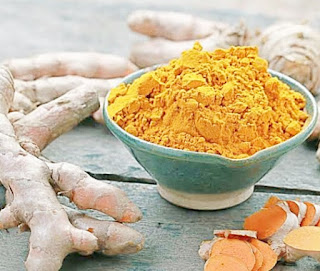In our stressful life, we often become victims of some disease. Knee pain is another. There are many reasons which cause o knee pain. Knee pain can be caused by severe problems like sprain, fracture, injury or arthritis. Swelling in joints and bones mainly affects people with arthritis. It can be treated at home only by some natural remedies. There are 3 home remedies for knee pain treatment.
Ginger is known for its benefits and it is used for years in Ayurveda as a medicine. It is easily available in nearby stores or local vegetable vendors. It contains inflammatory properties that relieve pain in the stomach or arthritis. You can also consume raw ginger for pain.
Heat and Cold Therapy
A heating pad can help your knees to tighten the joints and reduce pain, while a cold gel-based pack will give you relief from pain and reduce swelling. You can use ice pack, heating pad, hot pack or electric blanket to get relief.
Apple Cider Vinegar
Apple cider is a great source for reducing pain in your knees. Its alkaline effect softens the muscles that reduces the pain and improves your movement. Mix apple cider vinegar with water and drink it before going to bed or you can mix it with coconut oil.
Turmeric
A chemical compound in curcumin, turmeric has anti-inflammatory properties and antioxidants that help in reducing pain. It reduces knee pain and gives relief immediately. Mix one spoon turmeric and one teaspoon ginger in some water and boil for 15 minutes. Drink it after cooling. You can add honey to taste. The second option is to drink turmeric milk - add one big spoon turmeric powder in the milk and mix well.
Ginger Extract
Ginger is known for its benefits and it is used for years in Ayurveda as a medicine. It is easily available in nearby stores or local vegetable vendors. It contains inflammatory properties that relieve pain in the stomach or arthritis. You can also consume raw ginger for pain.
Mustard Oil
A gentle massage with mustard oil can work wonders for pain. Massage of mustard oil will make you feel better and reduce the pain caused by pain. This will stimulate blood flow and reduce pain and swelling.
Acupuncture
Acupuncture has been effective in reducing swelling and joint pain. Some acupuncture sessions can provide relief from pain-induced arthritis and inflammation. You can also consider risk free process as it is going to help you in other ways too.
Physical activity
Exercise can delay the development of osteoarthritis (OA), which is one of the most common causes of knee pain.
Being physically active stimulates the health of cartilage tissue, whether it is oily or not.
Exercise also strengthens the way the body supports joints. Strengthening the leg muscles is particularly beneficial for the knees.
People with joint pain can benefit from activities such as water aerobics, because it has little pressure on the knees.
Being physically active stimulates the health of cartilage tissue, whether it is oily or not.
Exercise also strengthens the way the body supports joints. Strengthening the leg muscles is particularly beneficial for the knees.
People with joint pain can benefit from activities such as water aerobics, because it has little pressure on the knees.
Strengthening exercises
A person can work with a physiotherapist to identify the best exercises and programs for their needs.
Strengthening the upper leg muscles - The muscles of the quadriceps - can help protect knee joint through exercise. These muscles are on the edges of the thighs and towards the front.
Here are some ways to strengthen these muscles:
When lying or sitting, make one leg straight and raise one leg up. Raise one foot up, then move the other down again, and repeat step-ups. Sit on a chair and then stand up and sit again for a minute. Do this in a slow, controlled way and avoid supporting hands. Take a chair and squat until the knee claws are covered. Do this 10 times.
Strengthening the upper leg muscles - The muscles of the quadriceps - can help protect knee joint through exercise. These muscles are on the edges of the thighs and towards the front.
Here are some ways to strengthen these muscles:
When lying or sitting, make one leg straight and raise one leg up. Raise one foot up, then move the other down again, and repeat step-ups. Sit on a chair and then stand up and sit again for a minute. Do this in a slow, controlled way and avoid supporting hands. Take a chair and squat until the knee claws are covered. Do this 10 times.
Posture and support
The measures that help to reduce knee stress include:
To avoid low chairs and sofas, you "sync" on a pillow to increase your sitting level, if necessary, that you have a good seating posture, without sliding or tilting without shoes And avoid people with broken arches, because they can result in abnormal force. Put on long knee and sit for long and wear on shaking, because there can be no pain and pain in the joints.
So, how was this article, tell us in comments and don't forget to follow our channel.











